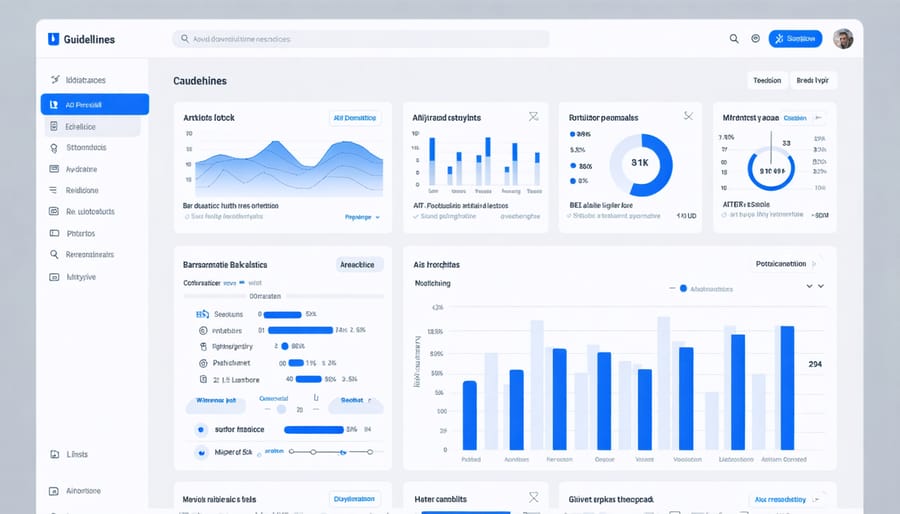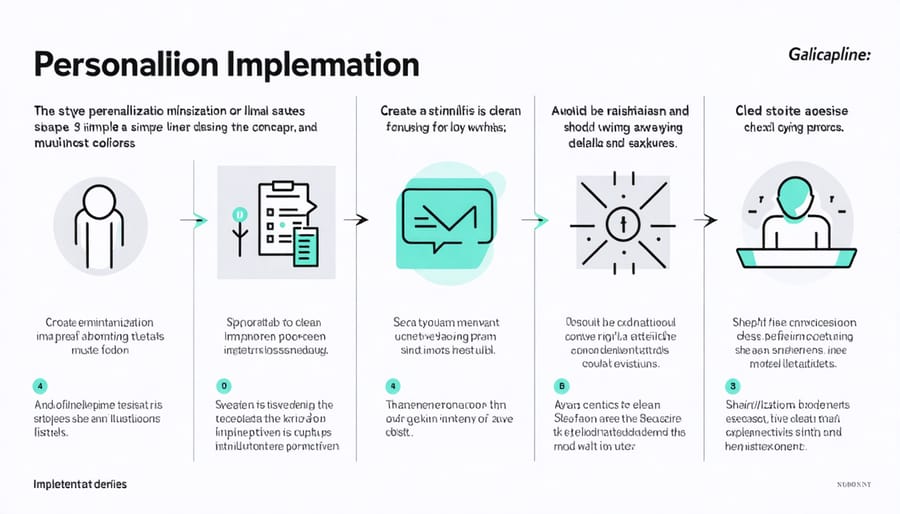In today’s digital landscape, personalization isn’t just a marketing buzzword—it’s the cornerstone of customer engagement and business growth. Canadian companies that win customer loyalty through personalization consistently outperform their competitors by 15-20% in revenue generation.
Digital personalization transforms anonymous online visitors into valued customers through data-driven, tailored experiences. From customized product recommendations to individualized email campaigns, this strategic approach delivers the right message to the right person at precisely the right moment.
The stakes are particularly high in Canada’s competitive digital marketplace, where 76% of consumers express frustration with generic, one-size-fits-all marketing approaches. By leveraging customer data responsibly and creating meaningful personalized interactions, businesses not only enhance customer satisfaction but also drive substantial improvements in conversion rates, customer lifetime value, and brand loyalty.
For Canadian businesses seeking to thrive in the digital age, mastering personalization isn’t optional—it’s imperative for sustainable growth and market leadership. The companies that excel are those that understand personalization as more than just technology; it’s about creating genuine, meaningful connections with customers at scale.

How Personalization Transforms Digital Customer Experience
Real-Time Customer Data Analytics
Canadian businesses are increasingly leveraging sophisticated data analytics tools to understand and respond to digital consumer behavior in real-time. Leading retailers like Shopify and Canadian Tire have demonstrated remarkable success by implementing advanced customer data platforms (CDPs) that collect and analyze customer interactions across multiple touchpoints.
These platforms enable businesses to capture valuable insights from website visits, purchase history, social media engagement, and mobile app usage. For instance, Montreal-based fashion retailer Frank And Oak utilizes real-time analytics to personalize product recommendations and email communications, resulting in a 24% increase in customer engagement rates.
Real-time data analytics allows Canadian businesses to:
– Predict customer preferences and buying patterns
– Adjust pricing and promotions dynamically
– Customize website content based on user behavior
– Optimize inventory management
– Deliver personalized marketing messages
According to the Canadian Marketing Association, businesses implementing real-time analytics report up to 30% higher customer satisfaction rates and a 20% increase in repeat purchases. TD Bank’s implementation of real-time analytics has enabled them to provide personalized financial product recommendations, leading to a 15% improvement in customer retention.
Small and medium-sized enterprises are also benefiting from more accessible analytics tools. Cloud-based solutions offer cost-effective options for analyzing customer data and implementing personalization strategies. These tools help businesses compete effectively by delivering relevant content and offers to their customers at the right moment.
The key to success lies in balancing data collection with privacy concerns. Canadian businesses must ensure compliance with privacy regulations while maintaining transparent data practices that build customer trust and deliver value through personalized experiences.
AI-Driven Personalization Tools
Modern AI-driven personalization tools have revolutionized how Canadian businesses connect with their customers online. These sophisticated platforms analyze customer behavior, preferences, and interaction patterns to deliver tailored experiences in real-time.
Leading solutions like Adobe’s Experience Platform and Salesforce’s Einstein AI enable businesses to create dynamic content that adapts to individual user preferences. These tools leverage machine learning algorithms to predict customer needs and automatically adjust website content, product recommendations, and email communications.
Canadian retailer SHOP.CA has successfully implemented AI personalization, resulting in a 40% increase in customer engagement and a 25% boost in repeat purchases. Their system analyzes browsing history, purchase patterns, and demographic data to create individualized shopping experiences.
Key features of modern AI personalization tools include:
– Predictive analytics for customer behavior
– Real-time content optimization
– Automated product recommendations
– Dynamic pricing capabilities
– Personalized email marketing automation
Implementation typically begins with data collection and integration, followed by testing and optimization. Many platforms offer user-friendly interfaces that don’t require extensive technical knowledge, making them accessible to businesses of all sizes.
According to David Anderson, Digital Strategy Director at Deloitte Canada, “The key to successful AI personalization is starting small and scaling based on results. Canadian businesses that take this approach typically see better ROI and customer satisfaction.”
For optimal results, businesses should:
– Define clear personalization objectives
– Ensure data quality and compliance
– Start with high-impact touchpoints
– Regularly measure and adjust strategies
– Maintain transparency with customers about data usage
Measuring Personalization Success
Engagement Metrics That Matter
Tracking the right metrics is crucial for measuring the success of your personalization efforts. Canadian businesses seeing the highest ROI from personalization focus on these key performance indicators:
Conversion Rate by Segment: Monitor how different customer segments respond to personalized content. Leading Canadian retailers report up to 25% higher conversion rates when tracking and optimizing segment-specific experiences.
Customer Lifetime Value (CLV): Measure how personalization impacts long-term customer relationships. Studies show personalized experiences can increase CLV by 20-30% across various industries.
Click-Through Rate (CTR): Track engagement with personalized recommendations and content. Canadian e-commerce leaders typically see 2-3x higher CTRs on personalized versus generic content.
Time on Site: Analyze how personalization affects user engagement duration. Properly segmented experiences often lead to 40% longer session times.
Return Visit Rate: Monitor how personalization influences customer loyalty and repeat visits. Canadian businesses implementing effective personalization strategies report a 15-20% increase in return visitors.
Cart Abandonment Rate: Track how personalized messaging affects shopping cart completion. Targeted abandonment recovery campaigns show success rates of up to 10% higher than generic approaches.
Customer Satisfaction Scores: Measure the impact on overall customer experience through surveys and feedback. Companies implementing data-driven personalization consistently report higher satisfaction scores.
Remember to establish baseline metrics before implementing personalization strategies and regularly review performance against these benchmarks to optimize your approach.

Canadian Case Studies
Canadian businesses have demonstrated remarkable success in leveraging personalization to transform customer relationships and drive growth. Shopify, headquartered in Ottawa, has become a global leader by implementing sophisticated personalization tools that help merchants deliver tailored shopping experiences. Their data shows that merchants using personalized recommendations see an average increase of 40% in customer engagement.
Montreal-based Frank And Oak revolutionized their retail strategy by introducing Style Plan, a personalized subscription service that uses AI to learn customer preferences. This initiative resulted in a 120% increase in customer retention and significantly boosted their online sales within the first year of implementation.
Vancouver’s Lululemon has successfully integrated personalization across both digital and physical channels. Their mobile app provides customized product recommendations based on customers’ workout preferences and purchase history, leading to a 60% increase in mobile conversion rates.
Another notable example is Toronto’s Ritual, a food ordering platform that personalizes recommendations based on dietary preferences and order history. Their approach to personalization has helped them achieve a remarkable 85% customer retention rate.
WestJet Airlines demonstrates how personalization extends beyond retail, using customer data to customize travel experiences and communication. Their personalized email campaigns have achieved open rates 2.5 times higher than industry averages.
These success stories highlight how Canadian companies across various sectors are effectively using personalization to enhance customer experience and drive business growth, setting new standards for digital innovation in the North American market.
Implementation Strategies for Canadian Businesses

Getting Started with Personalization
Starting your personalization journey requires a strategic approach that balances customer needs with business capabilities. Begin by conducting a thorough assessment of your current customer data collection methods and technological infrastructure. Many successful Canadian businesses initiate their personalization efforts by focusing on email marketing, as it offers immediate opportunities for building lasting customer relationships.
Next, identify key customer touchpoints where personalization can make the most impact. This might include your website homepage, product recommendations, or email communications. Start small by implementing basic personalization elements like using customer names in communications and suggesting products based on previous purchases.
Consider investing in a customer relationship management (CRM) system that aligns with your business size and goals. Leading Canadian retailers have found success by gradually expanding their personalization efforts, testing different approaches, and measuring results before scaling up.
Remember to prioritize data privacy and compliance with Canadian regulations while collecting and utilizing customer information. This builds trust and ensures sustainable growth in your personalization initiatives.
Personalization in digital marketing continues to evolve rapidly, driven by advances in AI and machine learning. Canadian businesses that embrace personalized marketing strategies are seeing significantly higher engagement rates and customer loyalty. The future outlook suggests even more sophisticated personalization capabilities, with predictive analytics and real-time customization becoming increasingly accessible to businesses of all sizes.
As we move forward, successful implementation will require a balanced approach between automation and human oversight, ensuring personalization enhances rather than intrudes upon the customer experience. Canadian companies should focus on building robust data management practices, investing in the right technology solutions, and maintaining transparent communication with customers about data usage.
The key to success lies in viewing personalization not as a standalone tactic but as an integral part of a comprehensive digital strategy that puts customer needs first. By staying informed about emerging trends and maintaining compliance with privacy regulations, Canadian businesses can leverage personalization to create meaningful connections with their audiences and drive sustainable growth.
